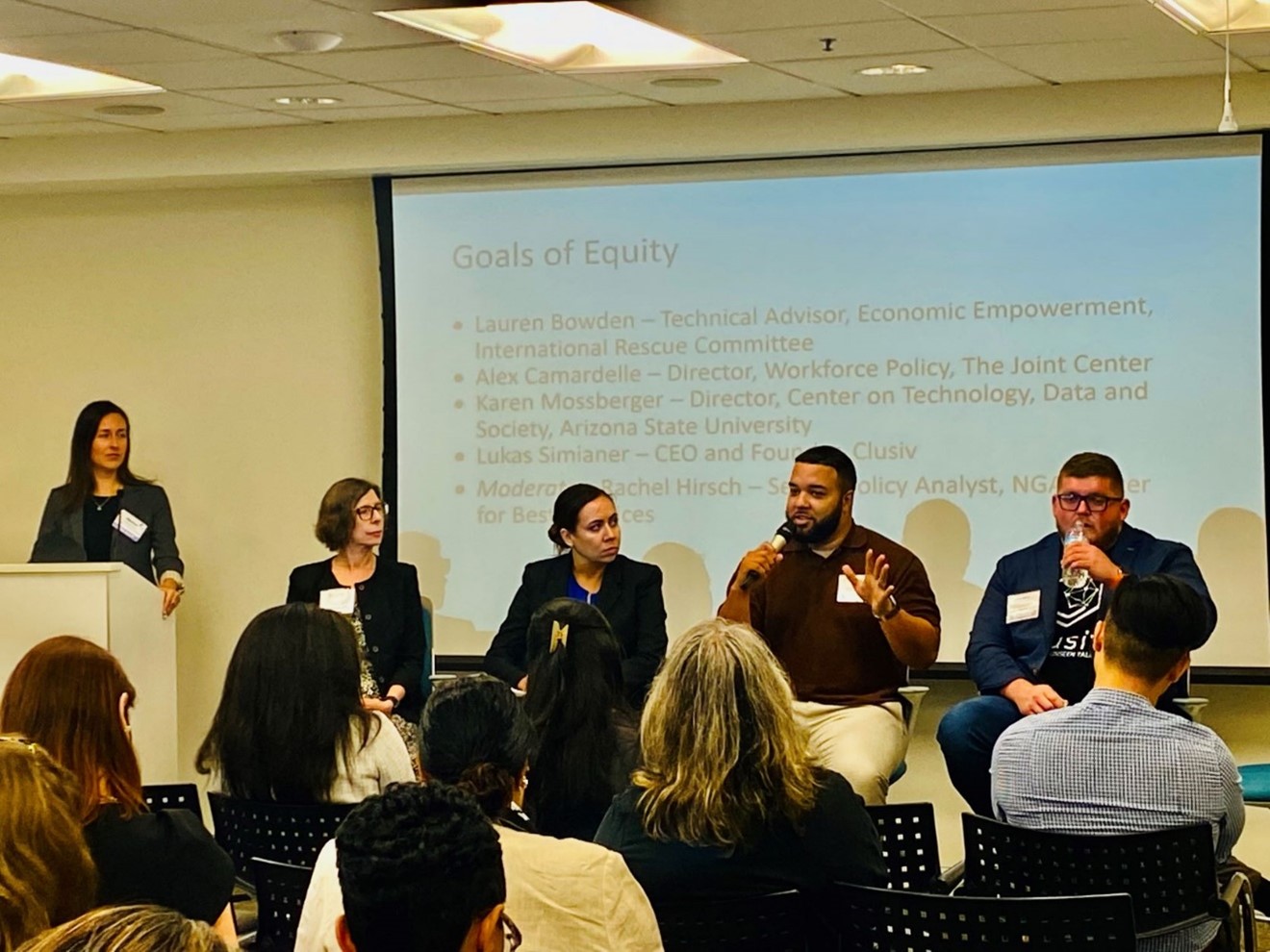The Digital Equity Act will deploy $2.75 billion in grants to states. Over five years, states will apply for and deploy funds to advance digital literacy and digital skill development, promote digital equity and access, and help workers and businesses adapt to the rapidly changing digital economy.
by Amanda Winters
On August 24-25, the National Governors Association Center for Best Practices (NGA Center), in partnership with the American Association of Colleges and Universities (AAC&U) held a meeting in Washington, DC, focused on State Postsecondary Education’s Role in Digital Equity Planning. This event focused on one critical stakeholder group as a part of an overall NGA Center strategy to support states in realizing digital equity for their residents through strategic leveraging of the federal digital equity investment. This convening brought together 12 state teams that included Governors’ policy advisors, infrastructure leads, broadband advisors, postsecondary agency staff and institutional leaders. In creating this intersectional learning space, the NGA Center also collaborated with federal partners from several offices across the US Department of Education and the Department of Commerce.
The Digital Equity Act (DEA), a provision of the Infrastructure Investment and Jobs Act, will deploy $2.75 billion in grants to states. Over five years, states will apply for and deploy funds to advance digital literacy and digital skill development, promote digital equity and access, and help workers and businesses adapt to the rapidly changing digital economy. The grant programs built into the Act aim to ensure that all communities can access and use affordable, reliable high-speed internet to meet their needs and improve their lives.
In order to support states in opening access points for digital inclusion, the DEA has identified covered populations for priority within program development. These covered populations include:
- Individuals living in households with incomes at or below 150% of the poverty line
- Individuals 60 years of age or older
- Veterans
- Individuals living with one or more disabilities
- Individuals with barriers to the English language (including English language learners and those with low literacy)
- Members of racial and ethnic minority groups
- Individuals residing in rural areas
- Individuals incarcerated in a non-federal correctional facility
These groups represent key target populations for state postsecondary systems as they seek to increase opportunity pathways and prepare the future workforce. The recent NGA event was structured to support states in leveraging their postsecondary assets. The 12 states represented had the opportunity to engage with federal partners, hear from national organizations who serve target populations and create action steps on how best to utilize postsecondary systems in advancing digital equity.

$2.75 billion will be distributed through the Digital Equity Act Programs to promote digital inclusion and equity to ensure that all individuals and communities have the opportunity to acquire the same skills, technology and capacity needed to engage in the n ation’s digital economy. These programs include the State Digital Equity Planning Grant Program, a $60 million formula grant program for states and territories to develop digital equity plans; the State Digital Equity Capacity Grant Program, a $1.44 billion formula grant program for states and territories to implement digital equity projects and support the implementation of digital equity plans; and the Digital Equity Competitive Grant Program, a $1.25 billion discretionary grant program for specific types of political subdivisions to implement digital equity projects.
This convening was supported by the Siemens Foundation through the NGA State Equitable Recovery Coalition action lab series. This was a part of a continuing effort to support Governors’ offices in state planning and program development connected to Digital Equity. Several NGA Center policy teams are working across state constituencies to map the ecosystem of stakeholders to increase access and digital skill building for the DEA covered population groups. Current resources connected to these efforts can be found at the NGA IIJA Implementation resource page.













